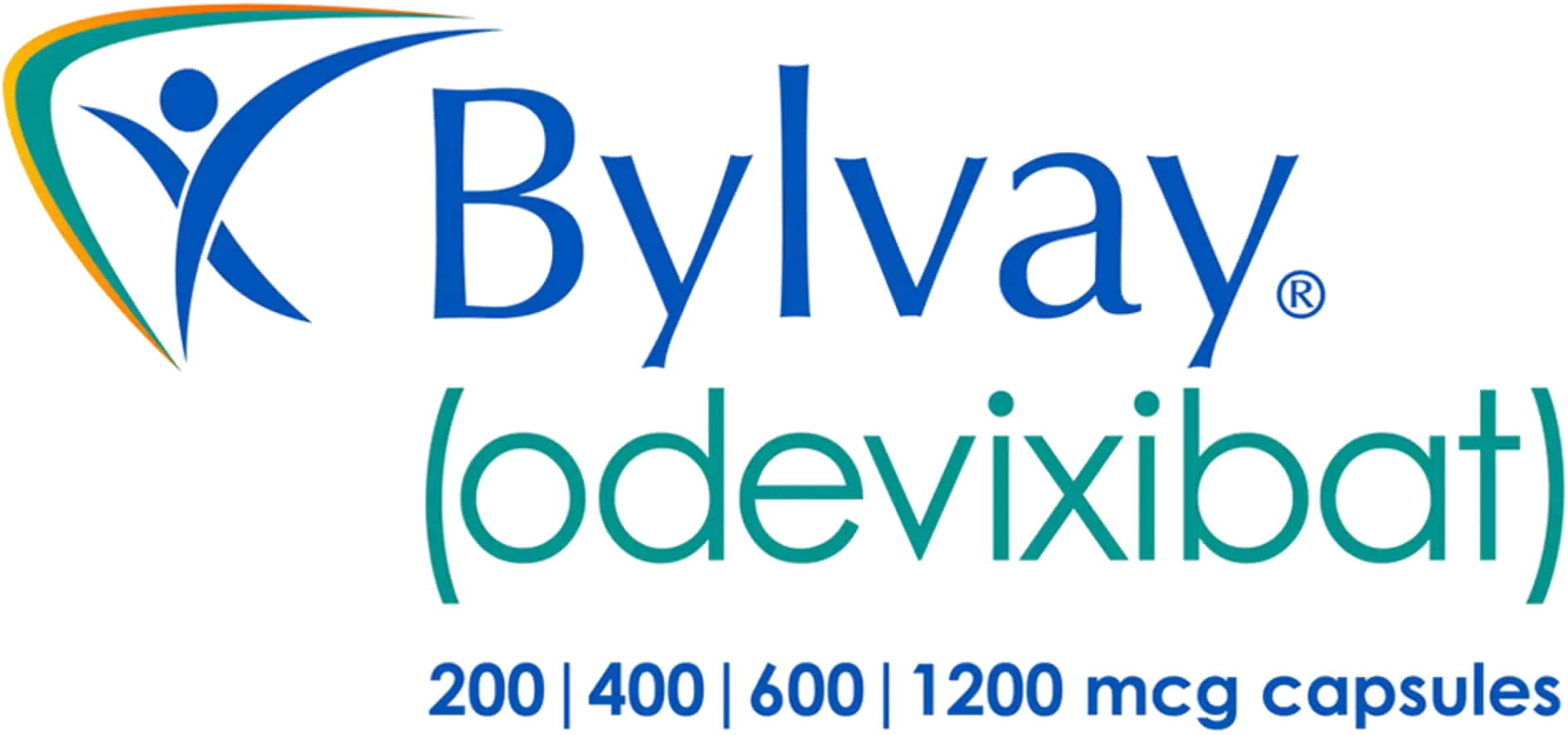INDICATIONS
Bylvay is an ileal bile acid transporter (IBAT) inhibitor indicated for the treatment of:
- cholestatic pruritus in patients ≥12 months of age with Alagille syndrome (ALGS)
- pruritus in patients ≥3 months of age with progressive familial intrahepatic cholestasis (PFIC)
Limitation of Use:
Bylvay may not be effective in a subgroup of PFIC type 2 patients with specific ABCB11 variants resulting in non-functional or complete absence of the bile salt export pump protein.
IMPORTANT SAFETY INFORMATION
Contraindications
IBAT inhibitors, including Bylvay, are contraindicated in patients with prior or active hepatic decompensation events (e.g., variceal hemorrhage, ascites, hepatic encephalopathy).
WARNINGS AND PRECAUTIONS
Hepatotoxicity
Bylvay treatment is associated with a potential for drug-induced liver injury (DILI). In the PFIC and ALGS trials, treatment-emergent elevations or worsening of liver tests occurred. Of the six patients who experienced DILI, two underwent liver transplant. Obtain baseline liver tests because some ALGS and PFIC patients have abnormal liver tests at baseline and monitor patients frequently for the first 6 to 8 months, and as clinically needed thereafter, for elevations in liver tests, for the development of liver-related adverse reactions, and for physical signs of hepatic decompensation. If liver test abnormalities or signs of clinical hepatitis occur in the absence of other causes, consider dose reduction or treatment interruption. Permanently discontinue Bylvay if a patient experiences the following: persistent or recurrent liver test abnormalities, or upon rechallenge, signs and symptoms consistent with clinical hepatitis, or a hepatic decompensation event.
The safety and effectiveness of Bylvay have not been established in patients with decompensated cirrhosis. Monitor patients with compensated cirrhosis or portal hypertension more frequently and discontinue if hepatic decompensation occurs. IBAT inhibitors, including Bylvay, are contraindicated in patients with prior or active hepatic decompensation events.
Diarrhea
In the PFIC and ALGS clinical trials, diarrhea was reported more frequently in Bylvay-treated patients compared to placebo. In the PFIC clinical trials, treatment interruption due to diarrhea occurred in 2 patients with 3 events. Treatment interruption due to diarrhea ranged between 3 to 7 days. One patient withdrew from the trial. In the ALGS clinical trial, no patients interrupted or discontinued treatment due to diarrhea.
If diarrhea occurs, monitor for dehydration and treat promptly. Interrupt dosing if a patient experiences persistent diarrhea. Restart Bylvay at 40 mcg/kg/day when diarrhea resolves and increase the dose as tolerated if appropriate. If diarrhea persists and no alternate etiology is identified, stop treatment.
Fat-Soluble Vitamin (FSV) Deficiency
Fat-soluble vitamins (FSV) include vitamin A, D, E, and K. PFIC and ALGS patients can have FSV deficiency at baseline. Bylvay may affect absorption of FSVs. In clinical trials, new onset or worsening of existing FSV deficiency was reported more frequently in Bylvay-treated patients compared to placebo.
Obtain baseline INR and FSV levels and monitor during treatment along with any clinical manifestations. If FSV deficiency is diagnosed, supplement with FSV. Discontinue Bylvay if FSV deficiency persists or worsens despite adequate FSV supplementation and consider restarting once the patient is clinically stable.
If bleeding occurs, interrupt treatment with Bylvay. Optimize treatment of FSV deficiency and consider restarting Bylvay once the patient is clinically stable.
Adverse Reactions
The most common adverse reactions for Bylvay in patients with PFIC are diarrhea, liver test abnormalities, vomiting, abdominal pain, and FSV deficiency.
The most common adverse reactions for Bylvay patients with ALGS are diarrhea, abdominal pain, hematoma, and decreased weight.
Drug Interactions
For patients taking bile acid binding resins, take Bylvay at least 4 hours before or 4 hours after taking a bile acid binding resin.
Use in Specific Populations
There are no human data on Bylvay use in pregnant persons to establish a drug-associated risk of major birth defects, miscarriage, or adverse developmental outcomes. Based on findings from animal reproduction studies, Bylvay may cause cardiac malformations when a fetus is exposed during pregnancy. There is a pregnancy exposure registry that monitors pregnancy outcomes in persons exposed to Bylvay during pregnancy. For more information, please call 1-855-463-5127.
To report SUSPECTED ADVERSE REACTIONS, contact Ipsen Biopharmaceuticals, Inc. at 1-855-463-5127 or FDA at 1-800-FDA-1088 or www.fda.gov/medwatch.
Please see accompanying full Prescribing Information, including Instructions For Use.




